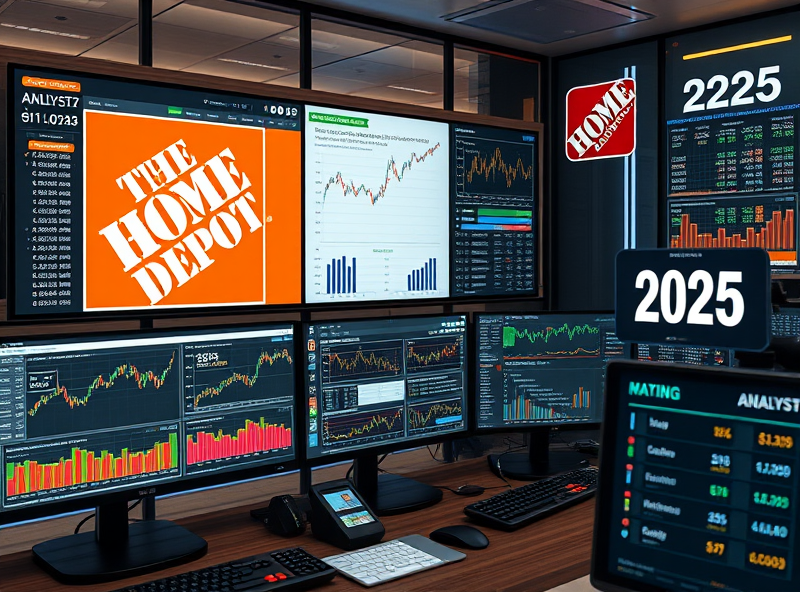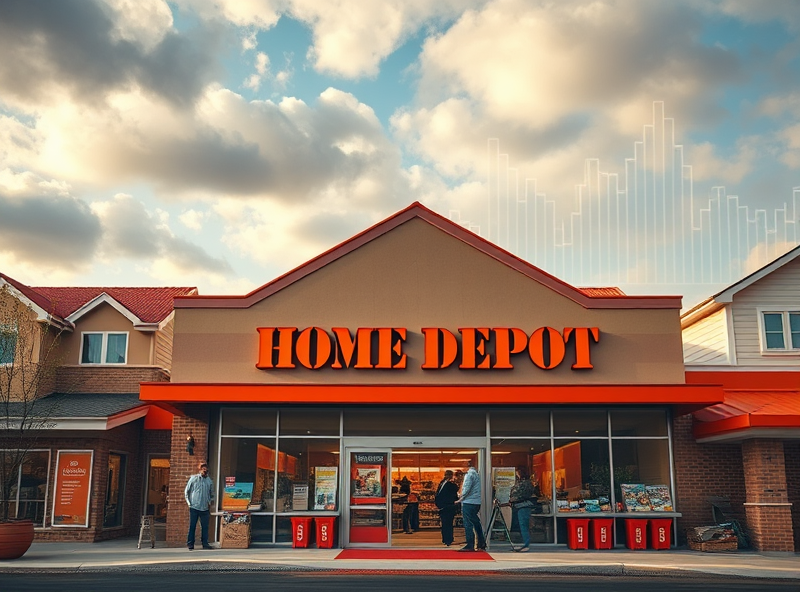
Is Home Depot Still a Smart Investment in 2025?
Financial Performance Amid Housing Uncertainty

Home Depot has long been a bellwether for the U.S. housing market, and as we approach 2025, investors are understandably cautious amid ongoing housing uncertainty. The company’s financial performance remains resilient, but it is not without challenges. Rising interest rates and a cooling real estate market have slowed new home construction and renovations, two key drivers of Home Depot’s revenue. However, the company has shown adaptability through strong cost management, supply chain improvements, and a growing focus on professional contractors, who account for about 50% of sales.
In its most recent earnings report, Home Depot posted a modest decline in revenue year-over-year, but beat analyst expectations thanks to better-than-expected margins and operational efficiency. The company is also investing in digital infrastructure and fulfillment capabilities, which could support long-term growth even if the housing market remains soft.
For long-term investors, Home Depot’s consistent dividend payouts, strong brand loyalty, and strategic investments suggest it may still be a smart hold. However, short-term volatility should be expected as macroeconomic conditions evolve.
For more detailed financial data, you can refer to Home Depot’s investor relations page: https://ir.homedepot.com/
Analyst Sentiment and Stock Price Projections

As we look ahead to 2025, many investors are wondering whether Home Depot remains a smart investment. One of the most insightful ways to evaluate this is by examining what market analysts are saying and how they project the company’s stock to perform.
Currently, the majority of Wall Street analysts maintain a ‘Buy’ or ‘Hold’ rating on Home Depot (HD), reflecting a generally positive sentiment. This optimism is grounded in the company’s consistent revenue growth, strong dividend history, and its ability to adapt to changing consumer behaviors, particularly in the home improvement and DIY sectors. Analysts are also encouraged by Home Depot’s digital transformation and supply chain enhancements, which are expected to drive long-term profitability.
According to a recent consensus from financial data providers like Morningstar and Yahoo Finance, the average 12-month price target for HD stock in 2025 ranges between $360 and $400, suggesting a moderate upside from current levels. However, some analysts caution that rising interest rates and a cooling housing market could temper growth, especially if consumer spending slows.
For long-term investors, the key takeaway is to focus on Home Depot’s fundamentals: strong cash flow, disciplined capital allocation, and its strategic investments in technology and logistics. These factors make it a resilient player even in uncertain economic conditions.
For more detailed analyst insights, you can refer to the latest report from Morningstar: https://www.morningstar.com/stocks/xnys/hd/quote
Dividends, Valuation, and Financial Health

As we look ahead to 2025, investors are asking whether Home Depot remains a smart investment. To answer that, we need to evaluate three key aspects: dividends, valuation, and financial health.
Home Depot has long been a favorite among dividend investors. The company has consistently increased its dividend payout over the years, demonstrating a strong commitment to returning value to shareholders. As of 2024, Home Depot’s dividend yield stands around 2.5%, supported by a healthy payout ratio of approximately 50%, which indicates sustainability and room for growth.
In terms of valuation, Home Depot is trading at a forward P/E ratio of about 20x, which is slightly above the historical average for the retail sector. While this might seem high, it reflects investor confidence in the company’s ability to maintain strong earnings even amid housing market uncertainties. The company’s strong brand, customer loyalty, and strategic investments in e-commerce and supply chain efficiency support this valuation.
Financially, Home Depot remains robust. It boasts a solid balance sheet with manageable debt levels and strong free cash flow generation. In 2023, the company generated over $14 billion in free cash flow, which not only supports dividends but also enables strategic reinvestments and share buybacks.
For long-term investors, Home Depot’s consistent dividend growth, fair valuation relative to its earnings potential, and strong financial health make it a resilient pick, even in a potentially volatile housing market.
Source: https://www.morningstar.com/stocks/xnys/hd/quote
Market Risks and Long-Term Investment Outlook

As we look ahead to 2025, investors are asking whether Home Depot remains a smart long-term investment. While the company has historically delivered strong returns, the broader market landscape presents both opportunities and risks that should be carefully considered.
One of the primary market risks is the ongoing uncertainty in the U.S. housing market. Rising interest rates, tighter lending standards, and fluctuating home prices could dampen demand for home improvement products. Since Home Depot’s performance is closely tied to housing activity, any slowdown in home sales or renovations may impact revenue growth.
However, Home Depot’s resilience lies in its strong fundamentals. The company has consistently maintained healthy profit margins, robust cash flow, and a disciplined capital allocation strategy. Its continued investment in digital infrastructure and supply chain efficiency also positions it well for long-term growth, even in a volatile market.
From a long-term perspective, demographic trends such as aging housing stock and increased remote work are likely to sustain demand for home improvement. Additionally, Home Depot’s focus on professional contractors—a segment less sensitive to economic swings—adds a layer of stability to its revenue base.
In conclusion, while short-term market risks exist, Home Depot’s strategic positioning and operational strength suggest it remains a potentially smart investment for long-term portfolios. As always, investors should align their decisions with their risk tolerance and investment horizon.
Source: https://www.morningstar.com/stocks/xnys/hd/quote







